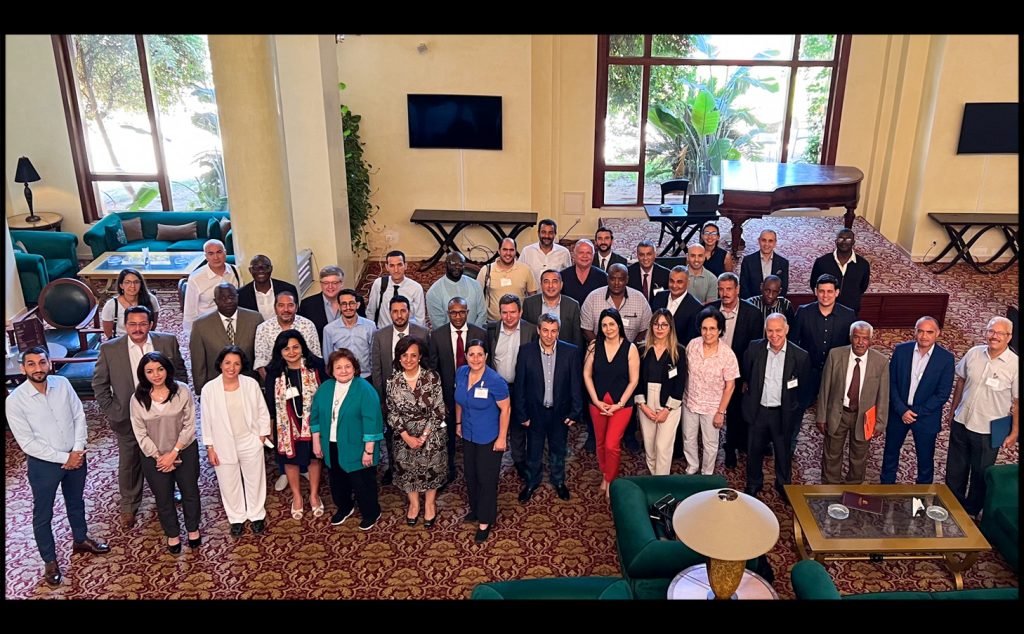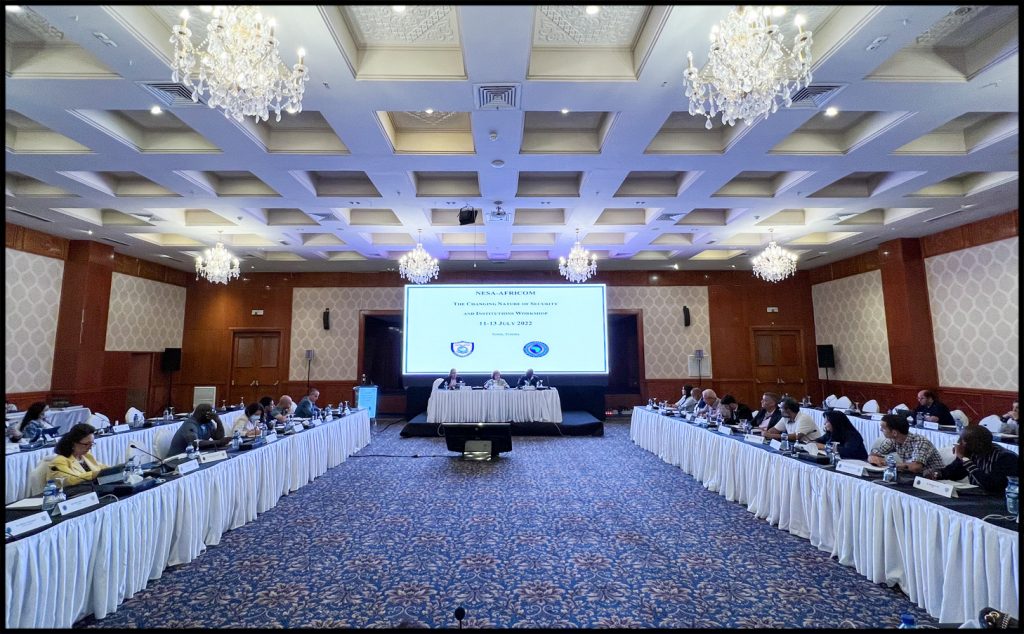NESA-AFRICOM “The Changing Nature of Security and Institutions Workshop”
August 8, 2022 2022-08-08 1:12NESA-AFRICOM “The Changing Nature of Security and Institutions Workshop”
NESA-AFRICOM “The Changing Nature of Security and Institutions Workshop”
The Near East South Asia (NESA) Center for Strategic Studies, in partnership with U.S. Africa Command (AFRICOM), conducted the NESA-AFRICOM “The Changing Nature of Security and Institutions Workshop” from 11–13 July 2022 in Tunis, Tunisia. Security discussions on capacity building and the increasing challenges of transnational threats (trafficking, migration, pandemics) and non-traditional challenges (climate, water) have challenged traditional concepts of threats as well as redefined security more broadly. It has also brought into question how best to design and organize the institutional capacity of civil society and, more specifically security sectors for today’s demands while leveraging technologies for their success in the future. As one examines the changing global trends and its impact on security, the changing nature of threats must also be addressed to include how countries, civil society and security forces will hedge capability and capacity development.

Of special concern will be determining what forms conflicts will take, what new/evolving threats will need to be addressed, and how security partners can best work together and with the U.S./West to address these. While the nature of war is static, the character of conflict and various security institutions flex to reflect society and therefore change based on evolving economics, politics, social/culture, and technical elements.
After a series of presentations, the group was invited to share national initiatives and perspectives in an extensive series of open discussion sessions. The group examined theoretical threats and how best to develop capabilities and strategies to address new technologies, insurgency and hybrid conflicts, and non-traditional security demands. Discussions also included challenges that range from cyber, anti-access, criminal elements to transnational, malign players, and the super-empowered non-state actors. Lastly, the group looked at the impact of grey/hybrid warfare and the convergence of technologies that directly impact how we organize, how we fight, and more importantly, what we can expect from enemy states, as well as non-state actors. The effective control of sea, land, air, cyber, and space domains will be critical: AI, drones, robotics, 3D printing, Nano, bio, cheap space, directed energy lasers and microwaves, etc., to name but a few areas.
There were 52 participants/speakers from eleven North African-Sahel countries attending from Algeria, Burkina Faso, Egypt, Libya, Mali, Mauritania, Morocco, Nigeria, Senegal, and Tunisia. Professor Anne Moisan (NESA Center Faculty and Course Director) directed the program with Fahad Malaikah (Deputy Course Director, Program Coordinator, and NESA Center Alumni Coordinator.)








